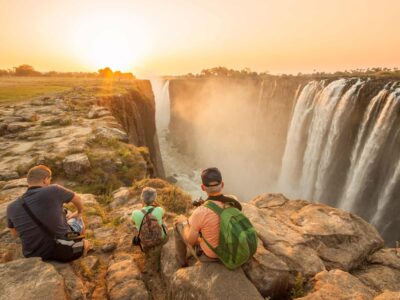Sustainable Tourism In Africa: Importance And How To Travel Responsibly.
Sustainable Tourism (All You Need To Know)
Sustainable tourism is crucial in preserving the rich biodiversity, cultural heritage, and natural resources that make Africa a unique and sought-after destination. Countries like Uganda, Kenya, Rwanda, Burundi, Congo, Tanzania, South Sudan, Zanzibar, Mauritius, and South Africa offer breathtaking landscapes, wildlife, and cultural experiences that need protection for future generations. Here’s why sustainable tourism is important and how to practice it in these African nations.
Importance of Sustainable Tourism in Africa
- Conservation of Wildlife and Natural Habitats: Africa is home to some of the world’s most iconic wildlife species, such as elephants, lions, gorillas, and rhinos. Sustainable tourism helps fund conservation efforts and protect these animals from threats like poaching and habitat destruction.
- Preservation of Cultural Heritage: Africa boasts diverse cultures, languages, and traditions. Sustainable tourism supports local communities and helps preserve these unique cultural identities by encouraging respectful interactions and the protection of cultural sites.
- Economic Benefits for Local Communities: Tourism is a significant source of income for many African countries. By focusing on sustainability, tourism can provide long-term economic benefits to local communities, helping to alleviate poverty and improve living standards.
- Environmental Protection: Sustainable tourism promotes eco-friendly practices, reducing the negative impact on the environment. This includes minimizing waste, conserving water, and using renewable energy sources.
- Promotion of Peace and Stability: Tourism can play a role in fostering peace by bringing people together and promoting understanding between different cultures and nations. In regions recovering from conflict, sustainable tourism can support rebuilding efforts and create a positive image.
Sustainable Tourism Gallery
How to Travel Sustainably in Selected African Countries
Uganda:
Gorilla Trekking: Participate in responsible gorilla trekking in Bwindi Impenetrable National Park, where your fees contribute to conservation efforts.
Support Local Communities: Choose community-led tours and accommodations that directly benefit local people.
Kenya:
Eco-friendly Safaris: Opt for eco-lodges in the Maasai Mara that practice low-impact tourism and support wildlife conservation.
Cultural Sensitivity: Engage in respectful cultural exchanges with the Maasai and other local tribes.
Rwanda:
Sustainable Gorilla Tourism: Like in Uganda, Rwanda’s Volcanoes National ParkVolcanoes National Park offers sustainable gorilla trekking. Ensure you follow all guidelines to minimize your impact.
Invest in Local Crafts: Buy locally made crafts and souvenirs to support the Rwandan artisans.
Burundi:
Cultural Tourism: Experience Burundi’s rich culture by visiting traditional drumming performances and supporting local artists.
Stay in Eco-Lodges: Choose accommodations that prioritize environmental sustainability.
Congo:
Responsible Park Visits: When visiting Virunga National Park, ensure your trip supports conservation efforts and local communities.
Respect Nature: Practice “leave no trace” principles in the Congo’s delicate ecosystems.
Tanzania:
Ethical Wildlife Viewing: In Serengeti National Park, choose operators committed to minimizing disturbances to wildlife.
Support Conservation Projects: Contribute to projects like those in the Ngorongoro Conservation Area, where human-wildlife coexistence is a focus.
South Sudan:
Cultural Respect: Engage with local tribes like the Dinka and Nuer in a manner that respects their traditions and livelihoods.
Eco-friendly Practices: As South Sudan develops its tourism sector, prioritize eco-friendly accommodations and travel practices.
Zanzibar:
Marine Conservation: Participate in sustainable diving and snorkeling trips that protect coral reefs and marine life.
Support Local Economies: Purchase products from local markets and stay in locally-owned accommodations.
Mauritius:
Marine and Wildlife Conservation: Engage in responsible tourism activities like snorkeling in marine parks or visiting wildlife reserves that focus on conservation.
Sustainable Accommodations: Choose eco-friendly resorts that prioritize sustainability.
South Africa:
Wine Tourism: Visit vineyards that practice sustainable farming in regions like Stellenbosch.
Responsible Wildlife Encounters: Ensure your safari in Kruger National Park adheres to ethical practices that protect wildlife and their habitats.







Travel Advice From JimJam Safaris
We cater to all ages, budgets, interests, and fitness levels. Our team can assist with queries about Sustainable Tourism, tours, Accommodations, bookings, and Affordable Luxury destinations. We will respond to your Inquiry as soon as possible. Our team of friendly and service-minded Safari Consultants is available to assist you in making a private, personalized, tailor-made Safari Itinerary and to answer all questions you might have. Are you dreaming of the Wildebeest Migration? Gorilla Trekking in Africa? Honeymoon In Africa or Africa’s Big 5 Experiences? Start planning your affordable luxury African tours with the Affordable Luxury African Safari Company (JimJam Safaris & Tours Africa). We tailor-make African Safaris for First Timers, 7-Day African Safari Tours, African Bush Safaris, and Beach Vacations.
